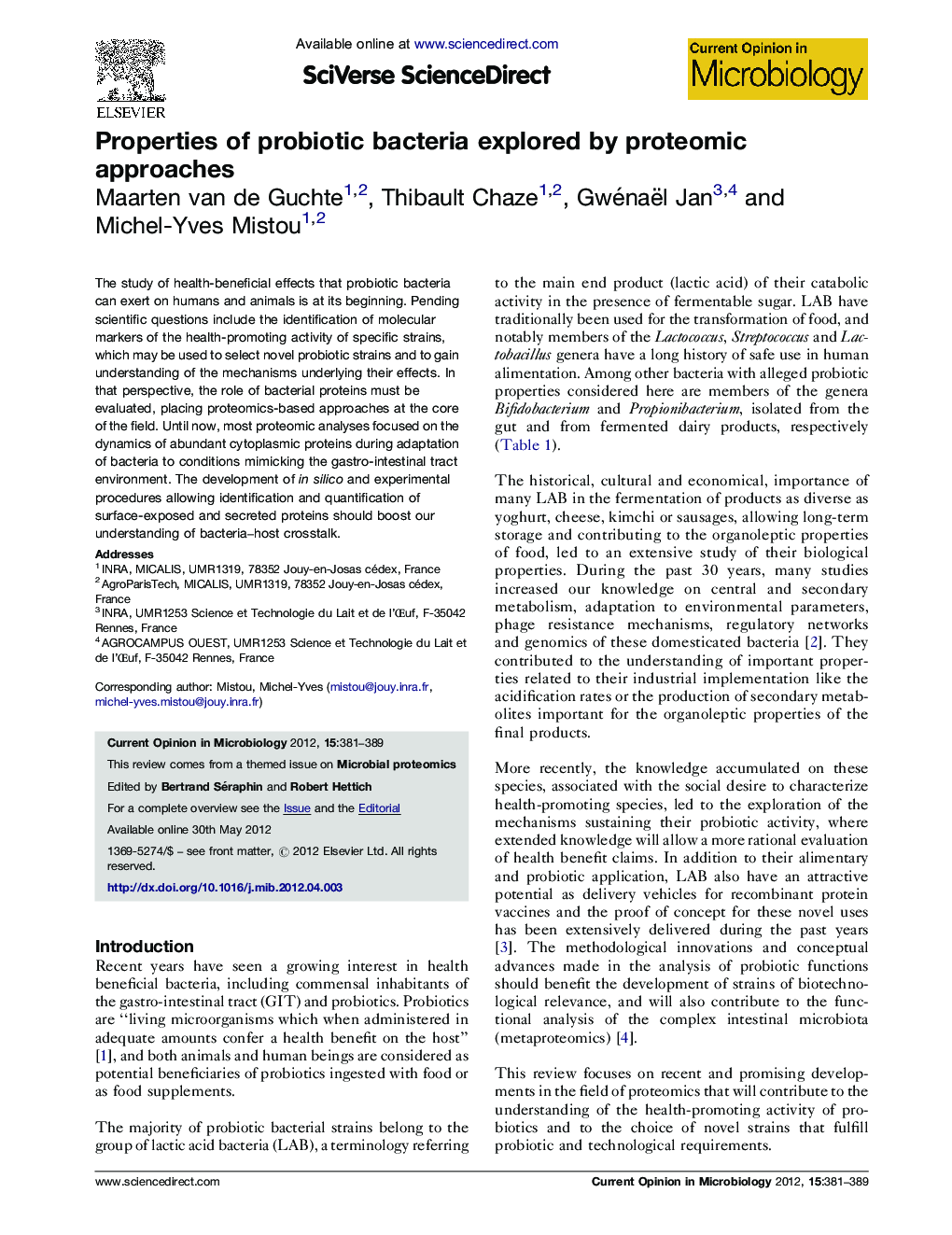| Article ID | Journal | Published Year | Pages | File Type |
|---|---|---|---|---|
| 3399270 | Current Opinion in Microbiology | 2012 | 9 Pages |
The study of health-beneficial effects that probiotic bacteria can exert on humans and animals is at its beginning. Pending scientific questions include the identification of molecular markers of the health-promoting activity of specific strains, which may be used to select novel probiotic strains and to gain understanding of the mechanisms underlying their effects. In that perspective, the role of bacterial proteins must be evaluated, placing proteomics-based approaches at the core of the field. Until now, most proteomic analyses focused on the dynamics of abundant cytoplasmic proteins during adaptation of bacteria to conditions mimicking the gastro-intestinal tract environment. The development of in silico and experimental procedures allowing identification and quantification of surface-exposed and secreted proteins should boost our understanding of bacteria–host crosstalk.
► A bacterial strain is considered probiotic when it exerts a health-beneficial effect. ► Mechanistic knowledge on probiotic effects will serve to substantiate health claims. ► Proteomic studies identified bacterial proteins relevant to probiotic behavior. ► Surface-exposed proteins belong to the key players in the bacteria–host dialog. ► Proteomic approaches allow the study of bacteria–host crosstalk in vivo.
